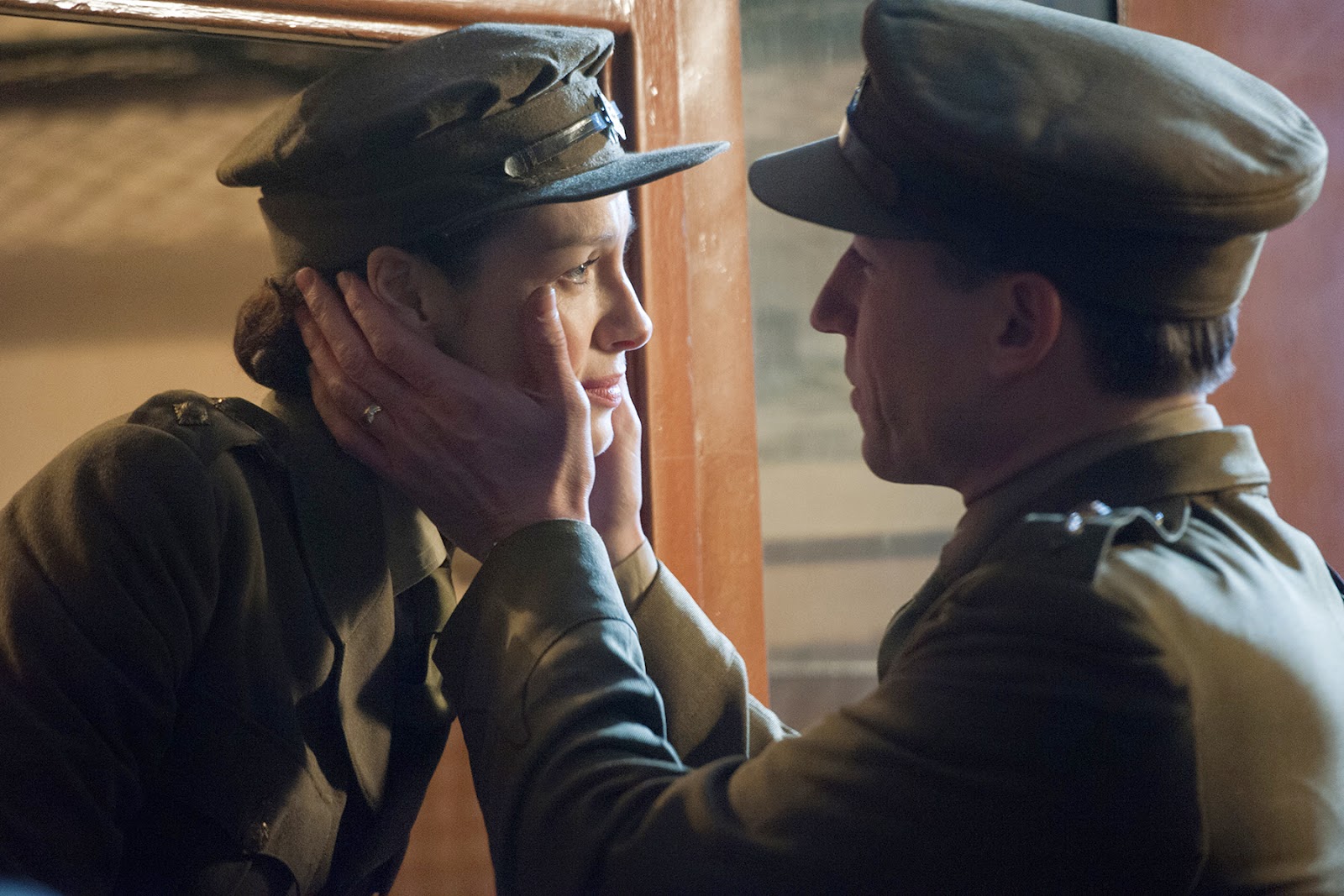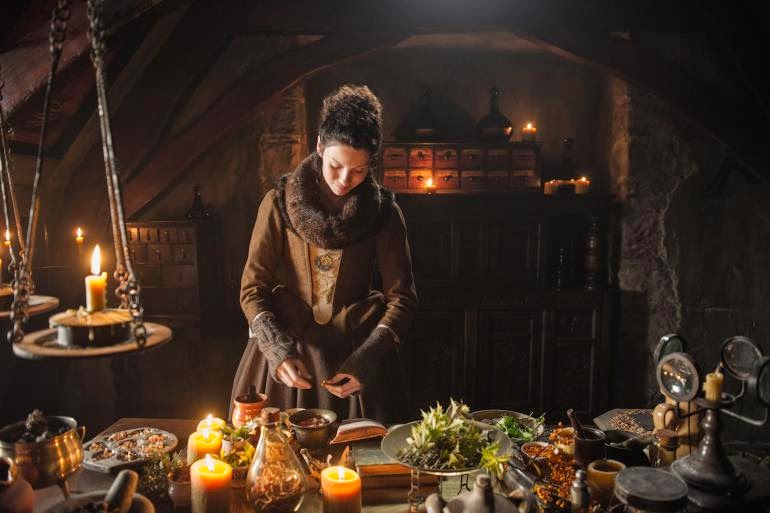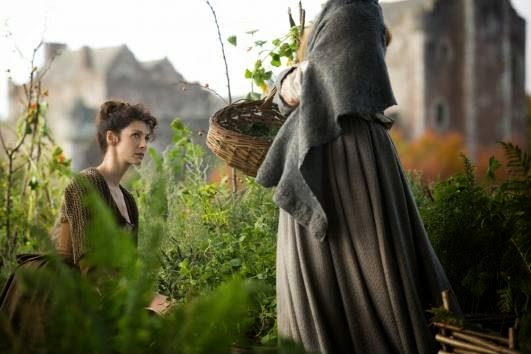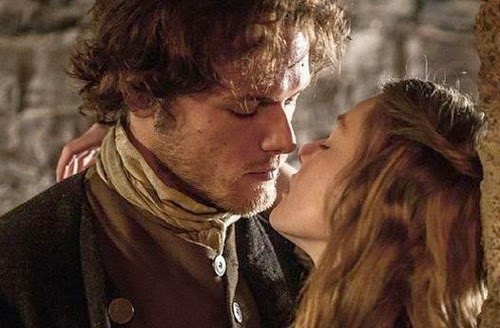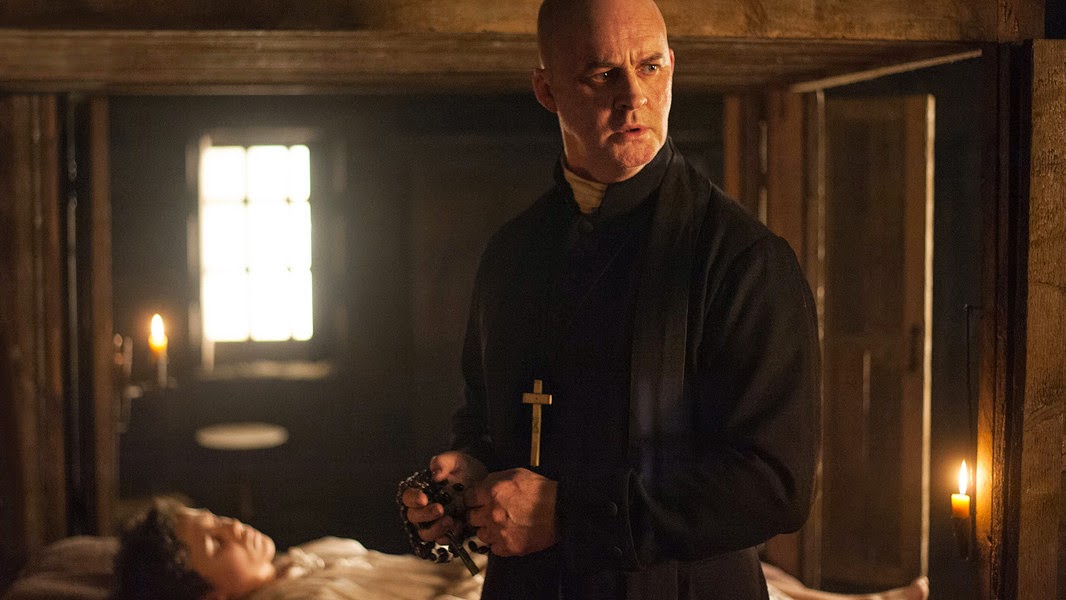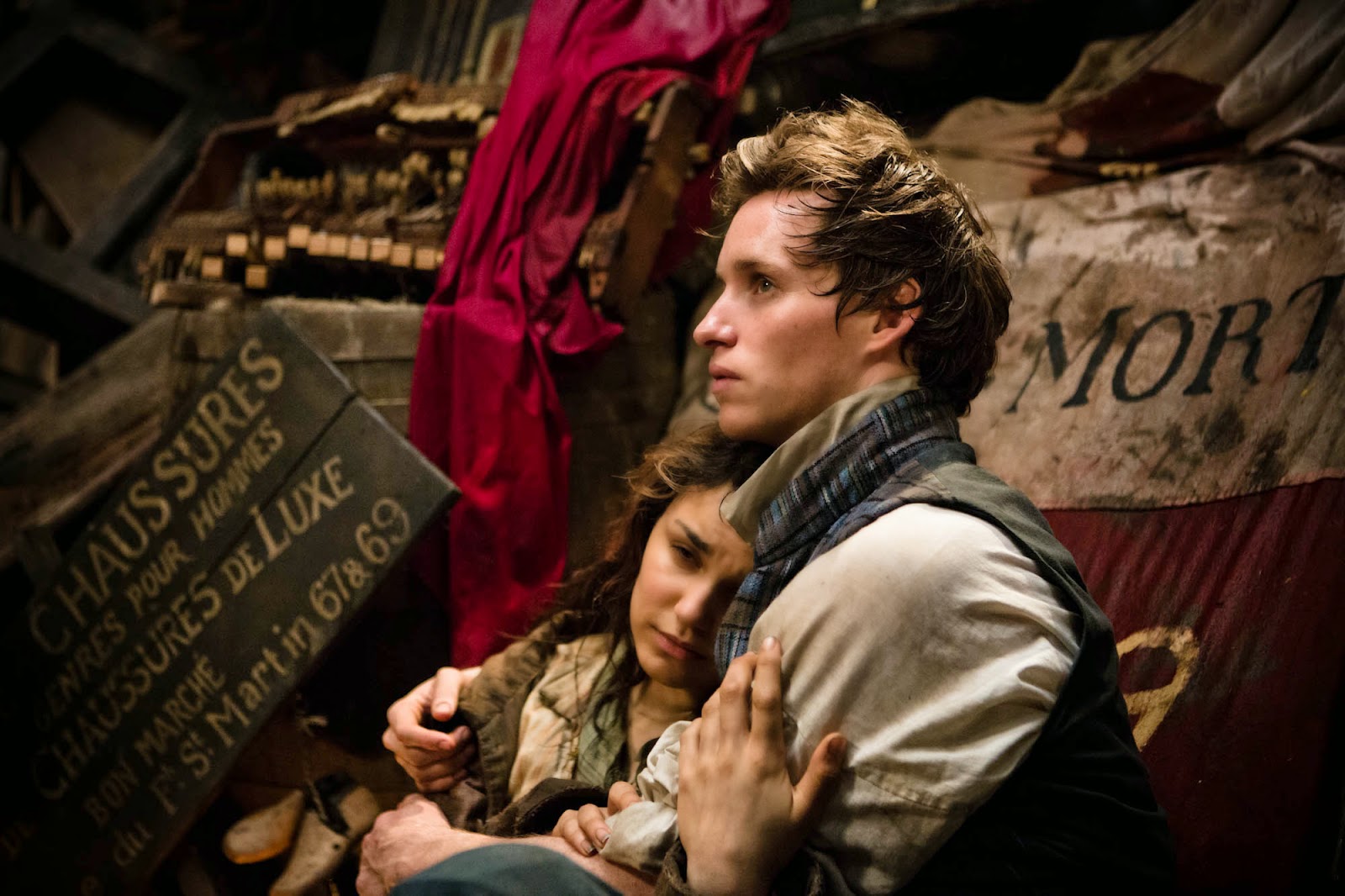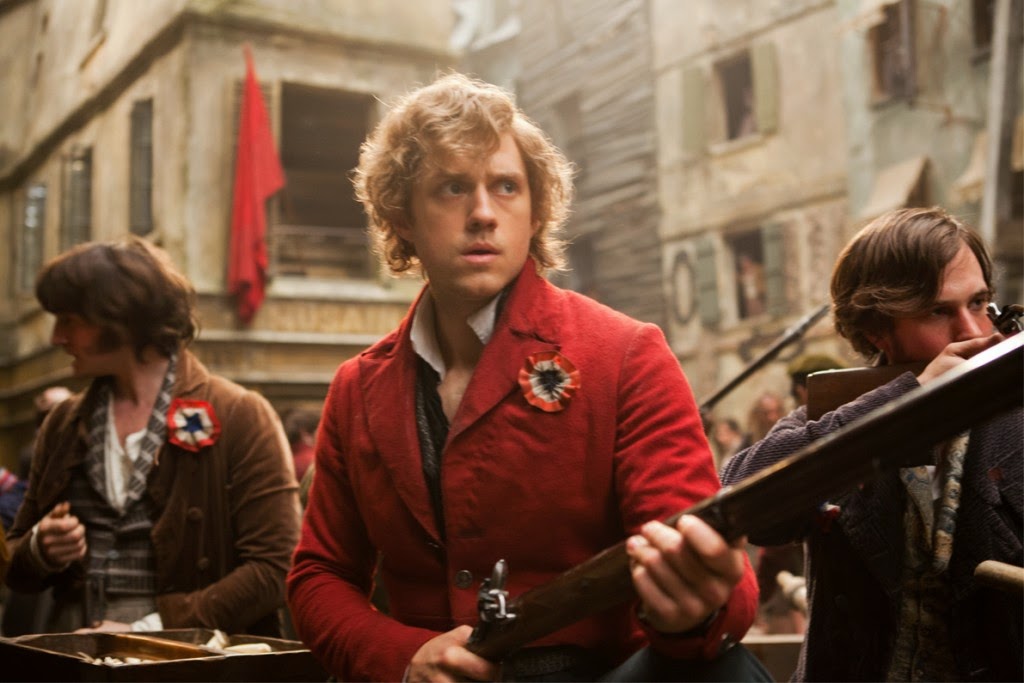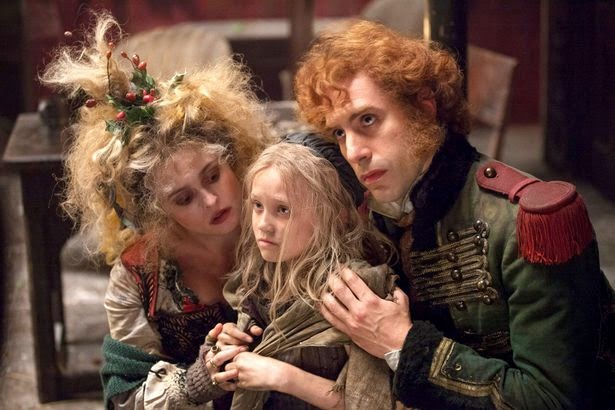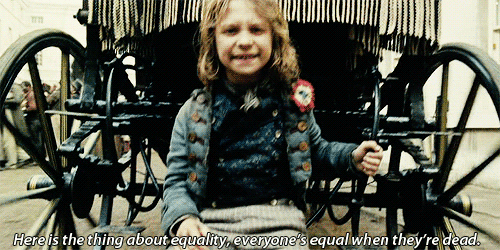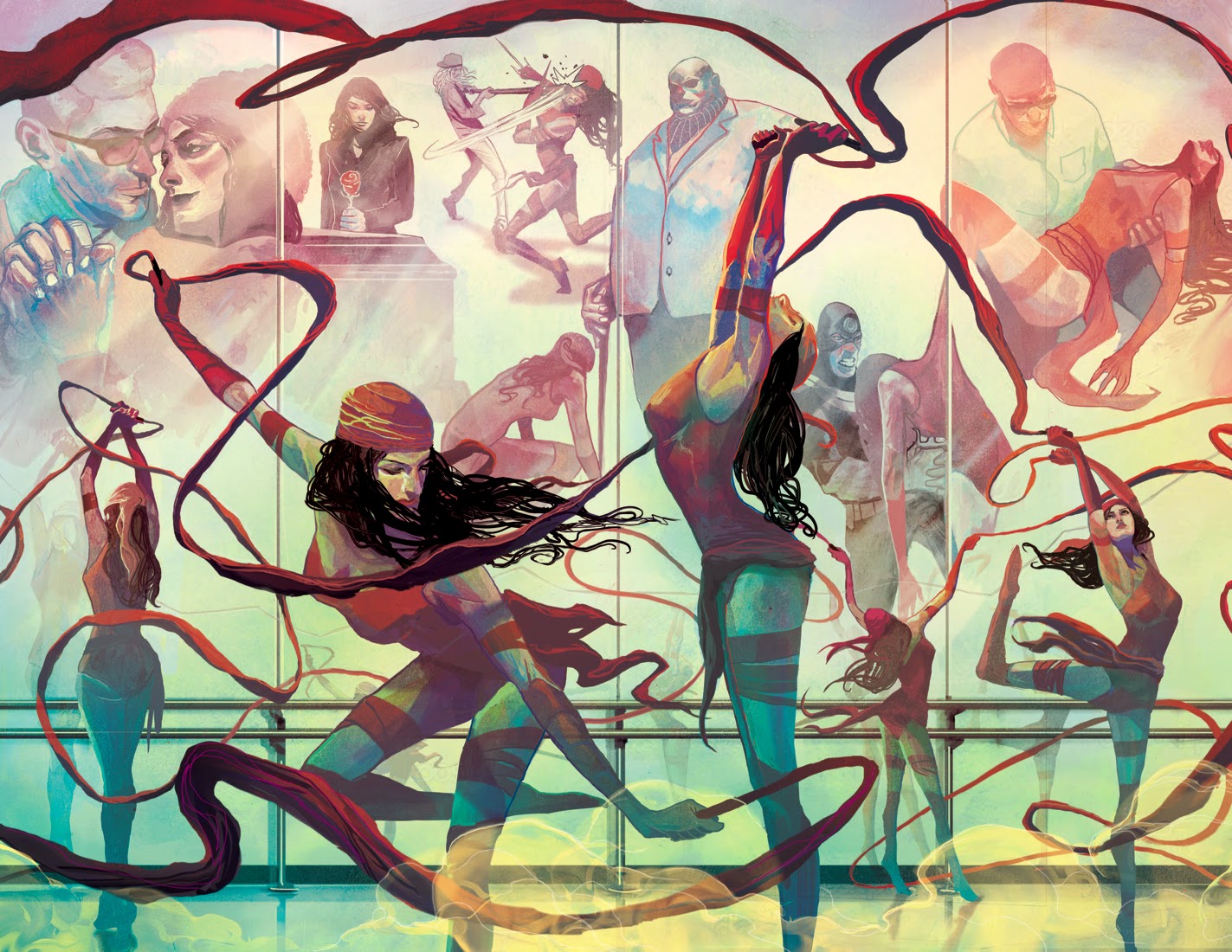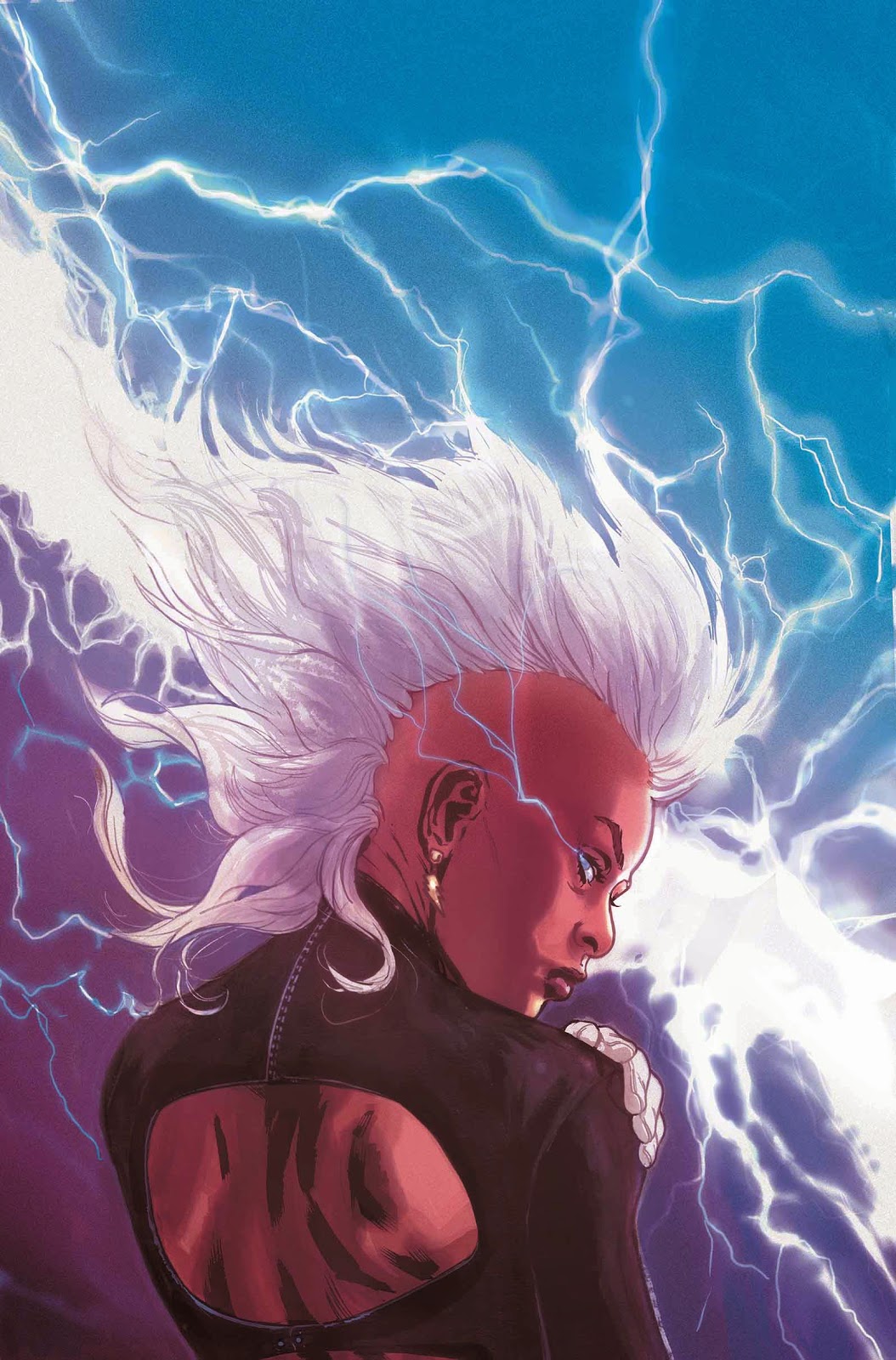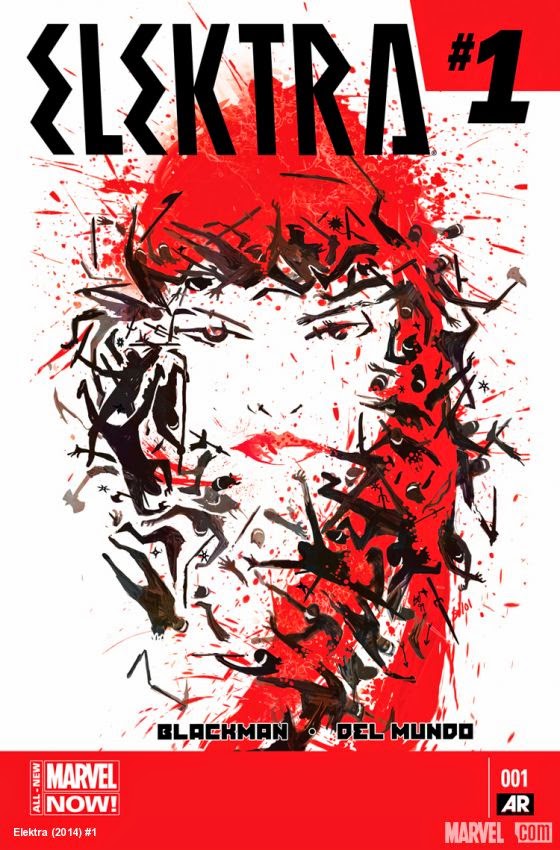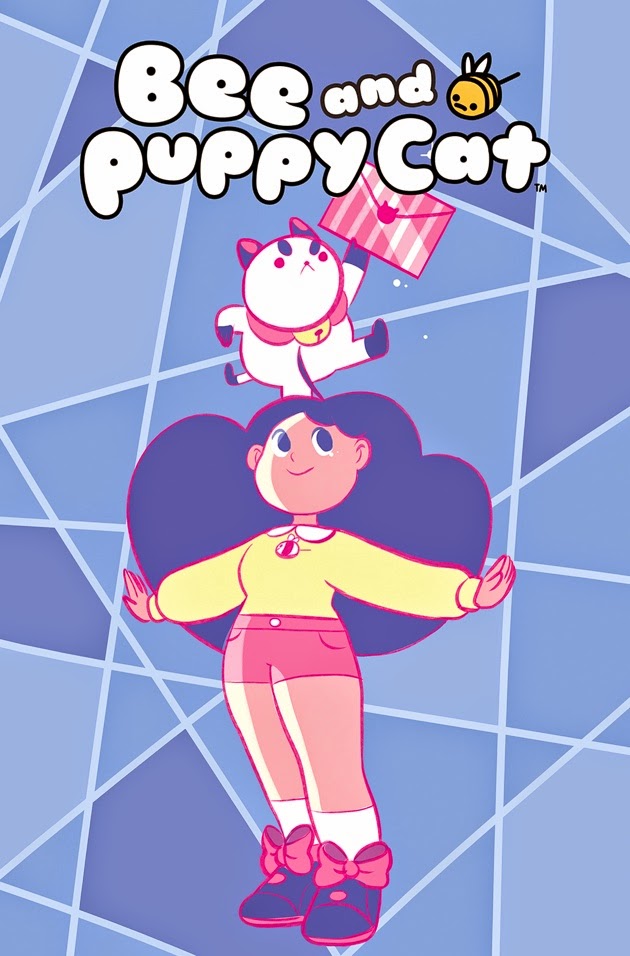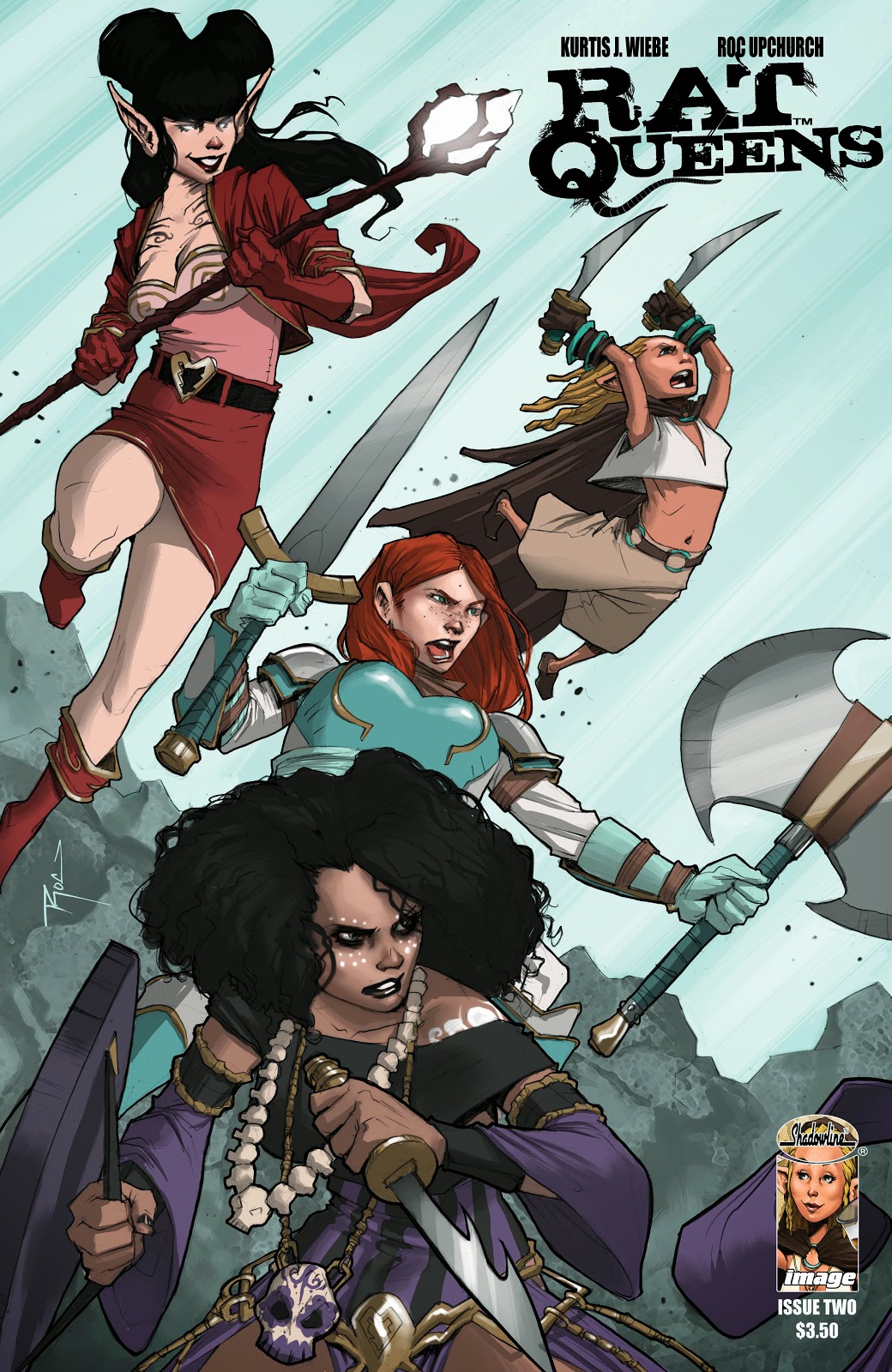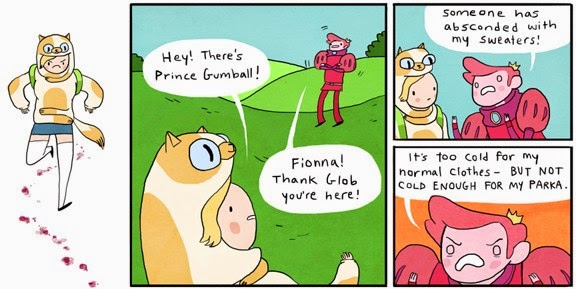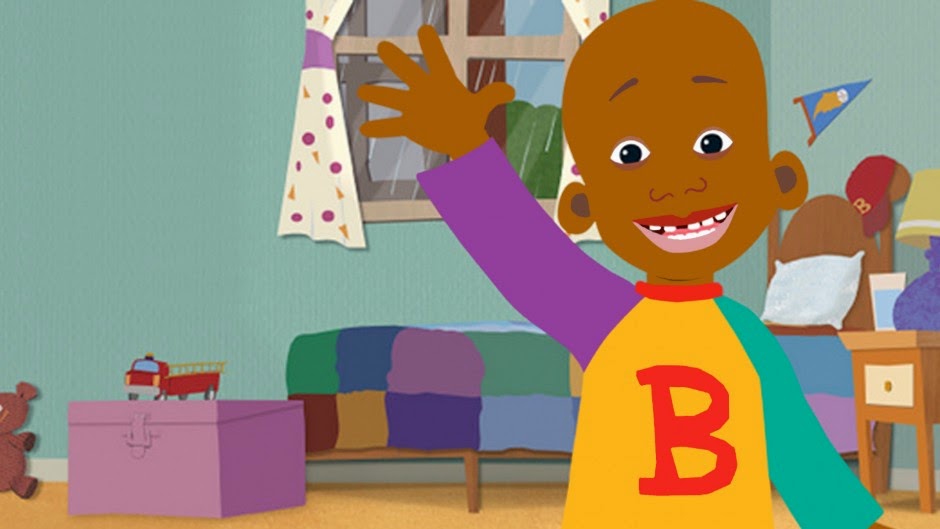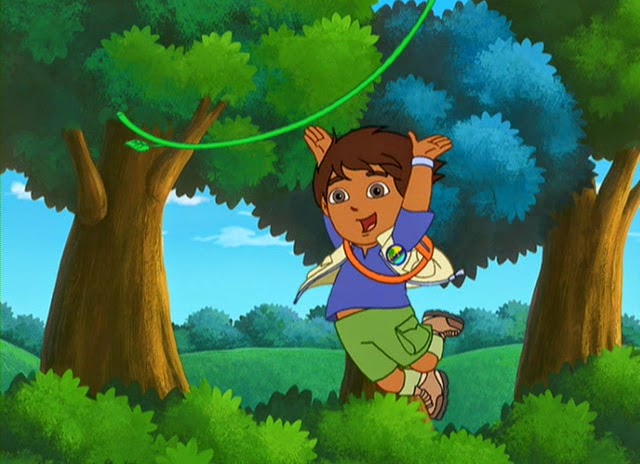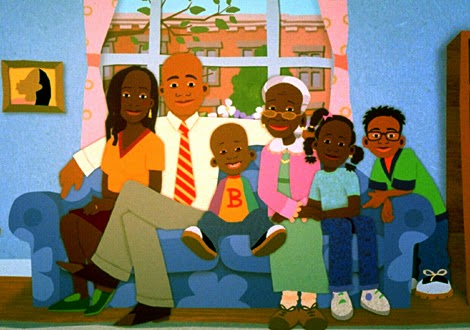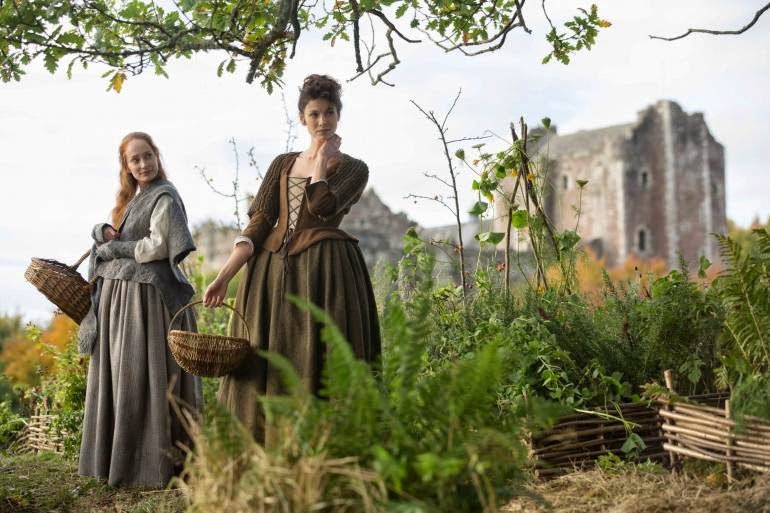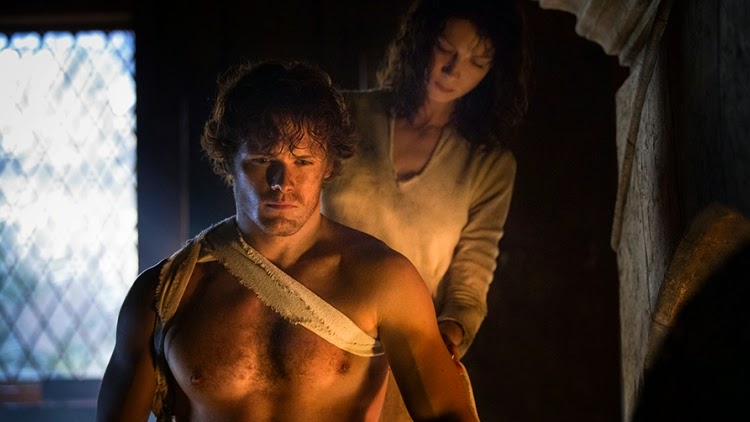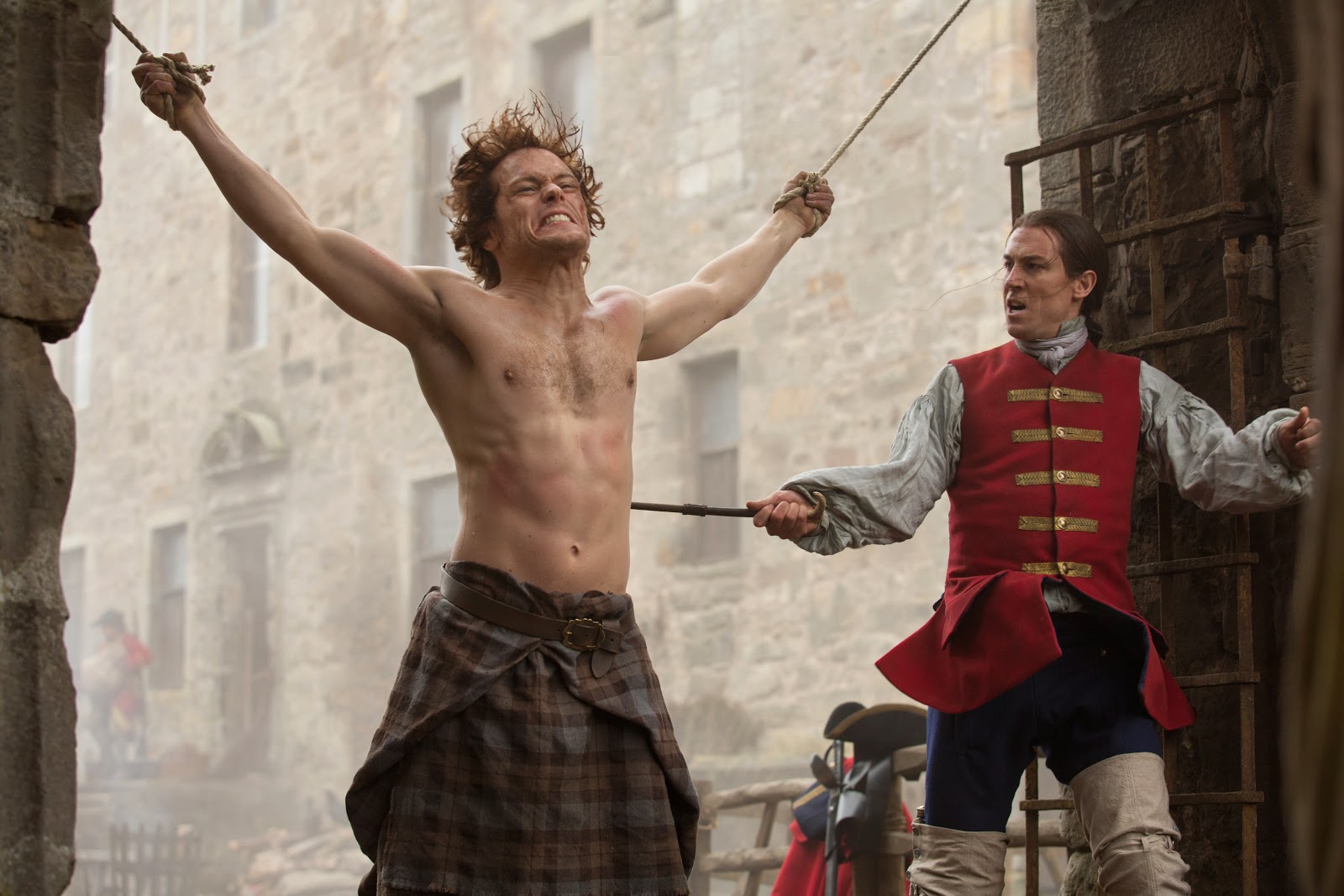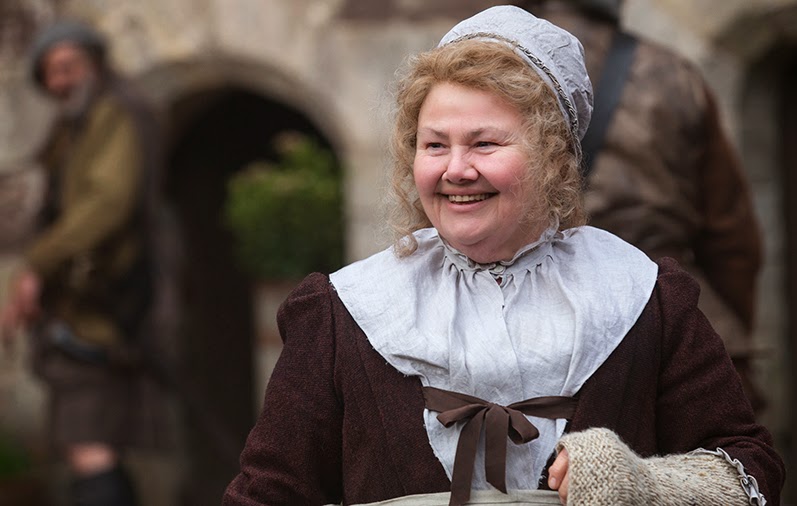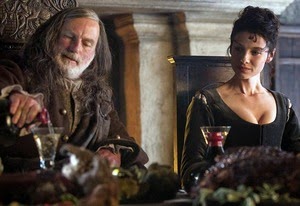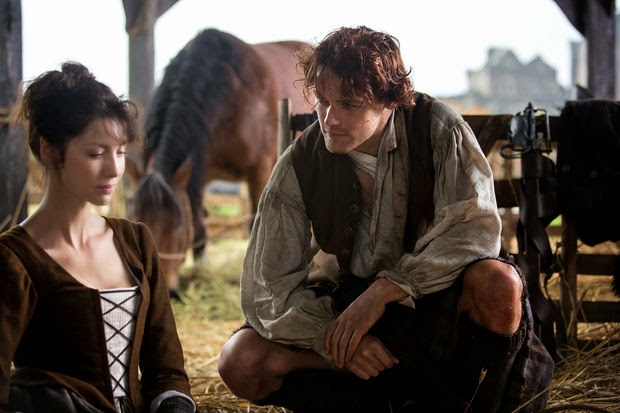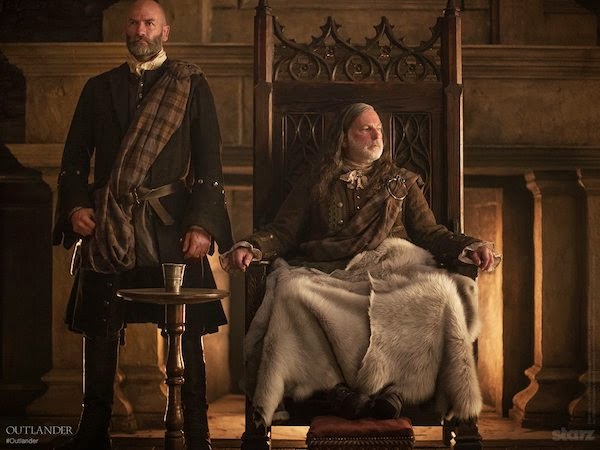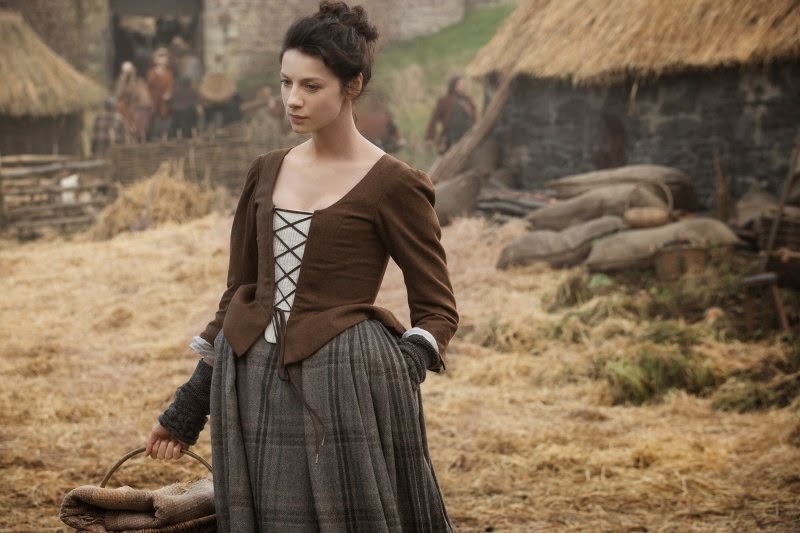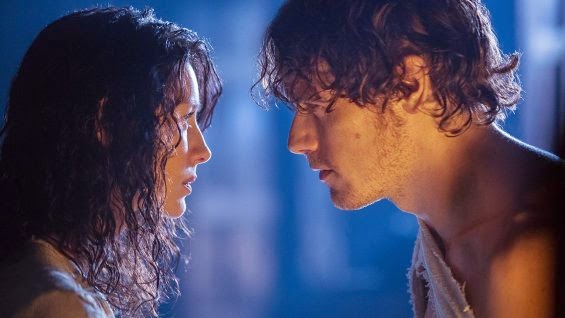Yeah, so apparently recovering from this wedding thing, and also physically getting back home, took a lot longer than I anticipated. Hopefully we'll be back to a regular posting schedule next week, but in the meantime, I did watch the newest episode of Outlander. And yes, it continues to be just as wonderful and amazing as promised.
The title of this episode is “The Way Out”, and it’s clearly on Claire’s mind. As you hopefully remember from last week, Claire is now basically a prisoner at Castle Leoch, imprisoned both because they think she’s an English spy and because they desperately need her medical skills to help the people of the castle. Claire’s not happy being stuck here in the past, and she’s looking for a way, any way, to get out.
But first, a flashback! We see a moment of Claire’s life with Frank prior to her abrupt transition in time, and it’s a very sweet moment indeed. Also, notably, a feminist one. In this memory, Claire and Frank are saying goodbye in a train station, as Claire gets ready to head to the Front, and Frank must stay behind in London. He’s protective and worried, but Claire is the sort of girl who never runs from danger, and she reassures him that she’s doing her duty, before kissing him through the train window as she moves off into the future.
I’m just saying, think of how many times we’ve seen that scenario play out with a wildly different gender dynamic. I find it incredibly refreshing to see Claire leaning over to kiss her man goodbye before she goes off to war. Even better, Frank isn’t guilting Claire over her choice or being anything but supportive and worried. It’s rad.
We then go into the world’s best misdirect. While Mrs. Fitz dolls up Claire like she’s her own, well, doll. One gets the impression from this, and the implication that Mrs. Fitz has been dressing Claire every morning for the multiple weeks she’s been at Castle Leoch, that Mrs. Fitz really really wanted a daughter. Also she kind of likes how Claire looks all pristine and not covered in scars.
But then Claire has to go and ruin the moment by telling Mrs. Fitz that she’s actually from the future and she fell through time and she needs to find some way to get back home because her husband is amazing and she misses him so much… Mrs. Fitz doesn’t really know how to react to this news, and promptly freaks the crap out, screaming about Claire being a witch and how she’s a demon and all that good stuff. Then Claire actually wakes up.
It’s a great misdirect for a couple of reasons. First, because this is a scene not in the book, but one that feels incredibly plausible. So I was stuck watching like, “Are they really changing it like this? Huh. Weird choice.” But it handily answers the audience’s question of why Claire never tells anyone. That’s why. And it’s a good reason. Second, this is a fantastic misdirect because it allowed the show to use a clip of Claire explaining her situation to someone in all of their promo-trailers without actually having to have a scene like that. Handy.
Anyway, the real business of the episode then gets underway. Mrs. Fitz wakes Claire up and gets her ready, reminding Claire that her existence in the castle relies on her being in Dougal and Colum’s good graces. The best way to do that? Lots of doctoring!
Of course, the doctor before Claire was a mis-informed quack who was pretty bad at his job even by ye olde-y standards, so in order to get to her doctoring, Claire has to clean out the surgery and get rid of that guy’s weird medicinal remedies. Like jars full of pill bugs and powdered human skull and dead mice. Fun, helpful stuff. But in between all the grossness are some valuable medicines, so the task isn’t impossible. Just boring. Insanely boring for Rupert, who is still her Dougal-assigned keeper. He yawns a lot. It’s pretty great.
As Claire gets down the real business of healing people, Rupert even goes bored enough to leave and go drink in the kitchen. It’s an interesting commentary on her character, too, that Claire doesn’t use this as an opportunity to try to run off. It seems that she really does take her doctoring seriously, whatever else she might resent about this place. There are sick and hurt people who need her, and she might be hell bent on leaving, but she’s still a physician. She still has a duty.
I like her.
When Claire comes up to the kitchen to try wrangling her guards into actually helping her, though, the real story of this episode gets going. It seems that one of the local boys has recently died after being possessed by a demonic spirit. Claire is baffled by this news, especially as it is delivered by a completely serious Mrs. Fitz. The stricken boy was friends with her grandson or nephew or something, and she’s terribly worried he might be taken too, since he went to the same evil place as the dead boy. But there’s no time to think on that now, as Colum has summoned Claire, and that could mean literally anything.
In this case, it means that Colum wishes to use Claire’s medical skills. He wants her to massage his legs - which as you may recall are misshapen due to a genetic disorder - and relieve the pain. Also we are treated to a positively badass scene where Colum tears his tailor a new one. The tailor has made Colum a new coat, but it’s a good foot longer than the current style, and Colum rightly assumes that this is because the tailor wants to hide his legs. And Colum? Colum is not ashamed of his legs. He refuses to be ashamed, and he’s certainly not going to pay anyone to imply he should be.
Just one more moment when this show proves that it can be radical and progressive and amazing without ever really feeling incongruous or anachronistic. Colum calls out ableism, Claire calls out sexism - it always feels natural and reasonable, because it is. People have always wanted to be treated as people, that’s not a new invention. There is no reason why Colum should feel ashamed about his legs, nor is there any reason why Claire should be okay with the idea of rape. Calling these things out isn’t anachronistic, it’s human. And awesome.
Back to the story, Claire’s a bit uncomfortable when Colum basically guilts her into massaging his legs, but then she recovers quickly and informs him that she’ll really need to massage his back in order to help the pain. Once more, Claire’s twentieth century medical training proves helpful, and her massage is the best relief Colum has gotten in years. Yay! People helping people!
While she massages him, they talk a bit about the stricken boy, and Claire inadvertently reveals that she doesn’t believe in demons or devils. No matter. Colum and everyone else believes enough to cover her. And he’s very grateful for her helping the pain, so he invites her to come to the hall tonight and listen to the bard sing.
This isn’t really Claire’s scene, and she’s quite happy to stand in the corner and drink some really strong wine, ignoring Dougal and his raging insensitivity as she tries to pretend she’s okay with being there. She ends up sitting right next to Laoghaire, the pretty girl that Jamie saved from a beating last episode. Laoghaire’s clearly got a thing for Jamie (because she is a human being with eyes), and Claire is more than happy to play matchmaker. She motions Jamie over, makes him sit next to Laoghaire, and then tells him how pretty Laoghaire is.
Tragically, Jamie only has eyes for Claire, and spends the whole evening chatting with Claire only, while occasionally noticing that Laoghaire is still there. And then handing her a dirty dish to take to the kitchens. It would be sad if it weren’t so funny. It’s also not helped by Claire and Jamie’s obvious closeness. After you’ve ridden on a horse with someone for three days, seen them shirtless, bandaged their wounds, and sobbed all over them, you bond a little.
Since Claire’s been drinking steadily throughout the night, Jamie decides to intervene before she passes out in the hall, and manufactures a reason to get her out of there. But not before he takes her wine glass and downs it, an act of casual intimacy that makes Laoghaire positively green and makes the audience coo. Or at least it made me coo. And I do not regret that.
Jamie drags Claire off to the surgery to ask her to change his bandages. He’d have done it down at the stable, but he doesn’t want Old Alec, the horsemaster and his mentor, to see his scars. Alec knows, of course, but knowing and seeing are two very different things. That might be one of the more profound points made on this show.
Also the sexual tension between these two is getting so thick I feel like I’m going to choke on it. In a good way? Just make out already! Seriously, she slowly undresses him in order to look at his bandage, and their faces are so close together and this is becoming physically painful. Ugh. Attractive people saying goodnight to each other. Ugh.
Fortunately we are saved by a scene change to the next morning, where Claire (and a reluctant Rupert) join Geilis Duncan on a hunt for medicinal herbs. By way of casual chit-chat, Geilis mentions that she came up with Father Bain, who is going to perform an exorcism on “the Baxter boy”, aka Mrs. Fitz’s grandson/nephew person. Claire is immediately alarmed, Geilis is disturbingly okay with all of this. And also super duper creepy.
She clearly knows something is off with Claire, and she’s got a solid hunch that whatever is up with Claire is not natural. Claire senses danger, and she should.
But also Claire’s innate sense of duty and need to help people in pain kicks in, and she rushes off to save Thomas Baxter from the tender mercies of Father Bain and an exorcism. This part, just for the record, isn’t actually in the book, but it should be, because it so excellently sets up later plot points. Anyway, Claire bursts in and tries to heal everything, while the priest freaks out and hates her vaguely for interfering with God’s work. And that priest is even creepier and more sinister than Geilis, which is saying something.
Rupert drags a dejected Claire back to the castle, where she sits down to rest for a moment and accidentally interrupts a “moment” for someone else. Namely Jamie and Laoghaire, who are making out furiously in a corner of the storeroom. Awkward. But Claire responds by basically giving Jamie a thumbs up, and then pretending she saw nothing. Because Claire is a mensch.
Fortunately, being a mensch doesn’t stop Claire from razzing Jamie about his tonsil hockey at dinner. There’s some lovely wordplay over “messing with the fillies” and then there is foot-kicking under the table and I want to smash their heads together and make them kiss, okay? And apparently so does Jamie’s friend (older relative, actually) Murtaugh, who tells Claire not-so-subtly that he thinks she should marry Jamie. Because reasons and the whole castle ships it by now.
This reminds Claire that she already is married, though, and she runs outside to cry a little. She’s so homesick, and Frank-sick, and just sick of being in 1743. I can’t blame her for needing a bit of a cry, and neither can Dougal, who happens on her vulnerable moment and is surprisingly kind about it. He tells her they’ll ride down to the town tomorrow, and she can visit with Geilis. It’s not a solution, but it helps.
Down in the village, Claire sticks the hell out. She’s dressed finely, riding her own horse, and accompanied by the brother of the laird. Not inconspicuous, exactly. Still, it’s nice for Claire to get to be with Geilis and talk herbs. Also Geilis takes a moment to warn Claire away from the priest, because he hates women and is also deeply crazy. Hooray! And Geilis continues trying to weasel information out of Claire, and Claire keeps trying to resist. What friendship. What love. What incredibly obvious ulterior motives…
The moment is interrupted when an angry mob appears, led by the priest, dragging a young boy to justice. Since Geilis’ husband is the local justice, they’ve come to her house, and Geilis remarks casually that her husband isn’t feeling well, so he’ll probably order the kid’s hand chopped off. Geilis is way too casual about maiming. Blegh.
And here’s the husband in question! Geilis’ husband, Arthur, is an elderly fat man with stomach problems. One would wonder how Arthur Duncan ended up with a hot wife like Geilis, but then again, some things never change. Like how hot women really like financial security. And, fortunately for Claire’s sense of justice, Arthur is really really dim. Geilis manipulates him into giving the boy a lighter sentence, mostly because Claire seems to want it, and Arthur thinks it’s all his own idea.
It would be cute if it weren’t so very terrifying how easily Geilis can run circles around her own spouse. I mean, I know she’s kind of creepy in the book, but the show has kicked her up about twelve notches. I love it.
The boy’s sentence is lightened to just getting his ear nailed to the pillory for an hour, a lenient judgment by medieval standards, but still one that horrifies Claire. Geilis decides to keep prying at her for more information, but Claire is saved when Jamie walks in. Jamie’s there to take her back to the castle, and by way of some adorable telepathy, he declines to hear anything about Claire’s past or stay for a cup of wine and interrogation. Good man, Jamie. He even brought Claire a cloak.
As Claire and Jamie are getting ready to leave, Claire can’t help worrying over the boy nailed to the pillory in the square. The people in the town are mocking him, and she just - Claire hates to see anyone in pain. She’s a healer. And Jamie? Jamie freaking loves that about her.
So they plot and plan and walk up to the pillory to take a look at the boy. Jamie taunts the child, while Claire pretends to swoon. The villagers are swarmed around Claire, making sure she’s okay, and Jamie takes the opportunity to pull the nail out of the boy’s ear while the incredibly conspicuous English lady plays on everyone’s assumptions that she’s afraid of blood and prone to swooning.
Their plan went off well, so Claire enlists Jamie in another scheme. To go to the “haunted” church where the two boys went right before becoming “possessed.” Jamie reveals that all the local boys go to this church, to prove their manhood and how they’re not scared. But lots of boys have died after visiting the church. And Claire might have found the reason - there’s a plot of plants that a lot of the boys eat. They look like wood garlic, but they’re actually lily of the valley, and that’s poisonous.
She knows what happened. She just has to prove it.
She doesn’t have much time, either. When she gets to the Baxter house, Father Bain is performing last rites on the boy. Claire pretty much demands to be allowed to treat him, and Mrs. Fitz agrees. Then Claire performs a “miracle.” She gives him essence of belladonna to cancel out the poison, and the boy wakes up. He’s healed, and Claire is officially in Colum’s good graces and the priest’s bad graces. Really bad.
And when talking to Jamie, Claire realizes that she might have gotten a little too far into Colum’s good graces. She’s proven to be such a good healer that he can’t let her leave. Well, crap. Though, for the record, isn’t it nice to have a female character on a show whose biggest obstacle is being too good at her job? That’s nice.
Also, Jamie doesn’t really like hearing Claire complain about how she wants to “get out of here.” Because he loves her. Poor Jamie. Loving a time-traveler is hard business.
So Claire takes a moment for a hardcore sulk and some more drinking while she listens to the bard. Jamie likes Claire too much to let her have a sad, and he drags her up front to listen to the songs. He also helpfully translates.
I say helpfully because it turns out that this song is really deeply relevant to Claire’s life. It’s about a woman who traveled through the stones to a far distant land where she lived for a time and then returned again home. In other words, what happened to Claire? It’s happened before. And that means she can get home.
End of episode. Next week? The Gathering for Clan MacKenzie and Claire’s first real chance to escape! Also, more Jamie drama, and a lot more sexual tension it looks like. Guh.
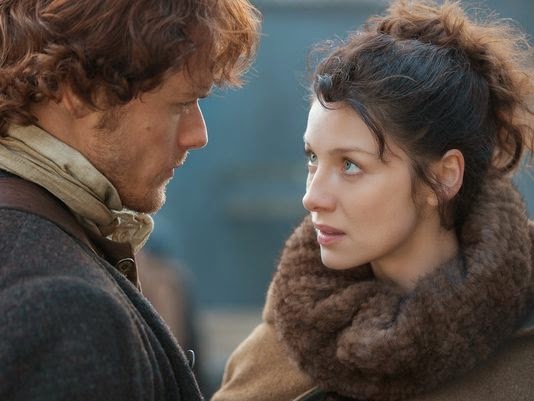 |
| It's not cheating if your husband hasn't been born yet, Claire. |

